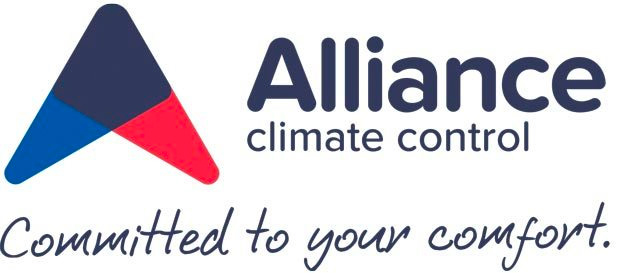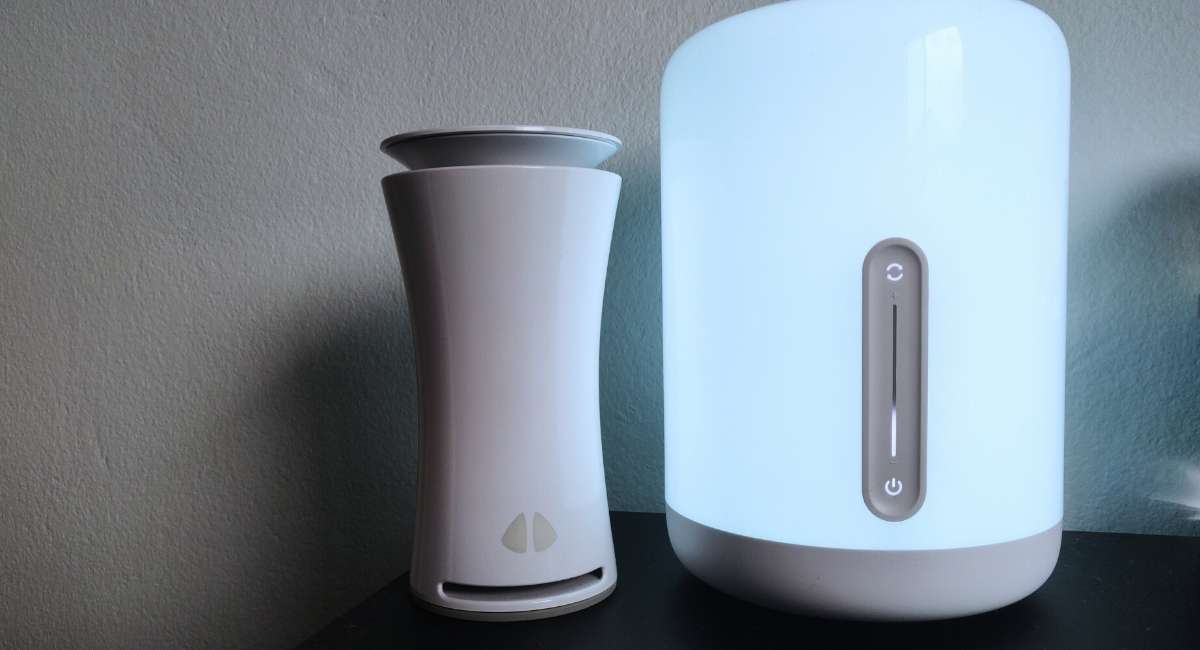
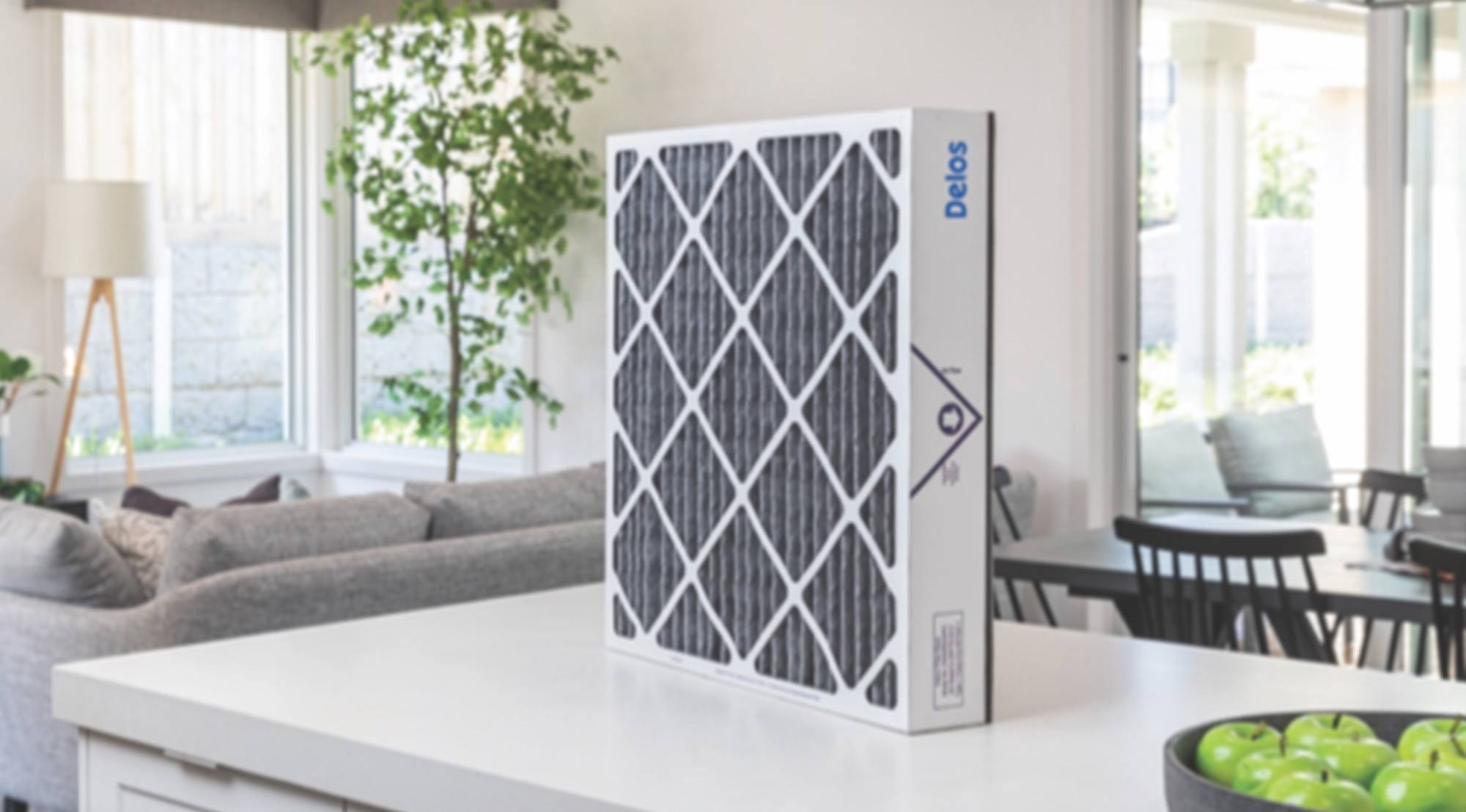
The ongoing pandemic has made people more aware of how they can stay healthy and avoid getting sick and has put more of a focus on air quality and filtering. Filters can be classified into two types based on their filtering abilities — MERV and HEPA, but what’s the difference between these HVAC filters, and how do they compare?
HEPA filters are highly efficient filters that are often found in hospital and health care facilities, while MERV filters come in a range of ratings from 1-20 that can filter particles like dust mites and viruses respectively. HEPA filters are the equivalent of a MERV 17 rated filter.
It may be challenging to compare the two types of filters comprehensively due to the volume of information on the internet. We have curated this informative guide to help you choose between HEPA and MERV 13 air conditioning filters.
Read on to learn more about which HVAC filter is the best choice.
What Is an Air Conditioner Filter?
An air conditioning filter removes particles and other impurities from your HVAC system to improve the quality of the air being circulated. They’re usually made of spun fibreglass or pleated cloth, with a porous structure and cardboard frame.
These filters are usually found on the air conditioning system’s return air, where pollutants and particulates that could harm the occupants’ health and comfort are contained. The filter in your air conditioning cleans impurities when air circulated through the system, passes the filter, and re-enters the room after being purified. This is highly beneficial to those who suffer from allergies, asthma, and other respiratory symptoms.
The HVAC system will push air through the filter, where the material then removes particulates and contaminants such as:
- Dust and dirt
- Pollen
- Mould and mould spores
- Fibres and lint
- Metal, plaster, or wood particles
- Hair and animal fur
- Dead skin or dander
- Bacteria
- Other microorganisms

There are several types of air conditioning filters that differ in how they are built and how they function in the air conditioning system:
Plastic Mesh Filters – Generally, these can be found in the return air portion of most air cons indoor units. With these filters, the air is filtered by catching bigger dust particles. The size of the particles caught means that the filter must be cleaned at least every two weeks. A much more frequent filter cleaning may be required if the room or area is polluted. Using water and dishwashing detergent to clean these filters is generally the way to go.
Electrostatic Air Filters – These filters are usually located within an air conditioning unit’s return air section. They work by subjecting air to as much as 12kV between two plates. The air then becomes ionised, consequently drawing them into the grounded plates. The voltage is generated by an electronic circuit located in a separate module or embedded in the control-printed circuit board.
Carbon and Adhesive Filters – These filters are made from activated carbon. They have been proven effective in removing gases and odour-causing bacteria. Adhesive air conditioning filters effectively trap particles and pollutants using sticky oil or liquid coating. These coatings are applied to a fibreglass or cotton filter base.
The cleanliness of air conditioning filters is important for people who have allergies or diseases such as asthma or are sensitive to air quality. However, it is important to know that not all air conditioner filters are built similarly. Some have better filtration capabilities than others and differ in the kinds of contaminants it filters. This is why AC filters have air filter efficiency ratings.
Can Any Air Conditioner Use Any Filter Type?
No, air conditioning units and HVAC systems are not always compatible with every type of filter. Not all MERV filters are compatible with air conditioning units or HVAC systems.
On the other hand, HEPA filters are too fine and delicate for use in an air conditioning unit or HVAC system. They have to be used in their own portable or standalone air purifier to be viable.
However, there are high-performing filters on the market which are suitable for home HVAC or air conditioning use, such as MERV filters.
What Is A MERV Filter?
The Minimum Efficiency Reporting Values (MERV) report a filter’s ability to capture large particles — particularly those that are 0.3 to 10 microns (µm) in size. Filters with this rating are called a MERV Filter. A MERV 13 filter is rated ‘superior’ to control bacteria, viruses and fine dust.
A MERV rating is an objective way of comparing the performance of different filters and is derived from a test method developed by the American Society of Heating, Refrigerating, and Air Conditioning Engineers (ASHRAE). A higher MERV rating will yield better filtration results for specific types of particles.
Standard MERV values range from 1 to 16, with the number indicating how well the filter can remove contaminants from the air. A higher MERV number indicates a better filtration capability. The MERV values are shown below:
|
MERV Rating |
0.3-1 µm | 1-3 µm | 3-10 µm | Filter Type |
Controlled Particles |
| MERV 1 | – | – | < 20% | Pre-filter/ Aluminium Mesh | Dust mites, dust, pet dander, pollen |
| MERV 2 | – | – | < 20% | ||
| MERV 3 | – | – | < 20% | ||
| MERV 4 | – | – | < 20% | ||
| MERV 5 | – | – | 20% – 34% | Low Quality MERV Filter | Spores, mould, cooking dust, hair spray |
| MERV 6 | – | – | 35% – 49% | ||
| MERV 7 | – | – | 50% – 69% | ||
| MERV 8 | – | < 20% | < 70% | ||
| MERV 9 | – | < 35% | < 35% | Standard MERV Filter | Lead dust, smaller mould, smaller pollen |
| MERV 10 | – | 50% – 64% | < 75% | ||
| MERV 11 | < 20% | 65% – 79% | < 80% | ||
| MERV 12 | < 35% | 80% | < 85% | ||
| MERV 13 | < 50% | < 90% | < 90% | Superior MERV Filter | Bacteria, viruses, fine dust |
| MERV 14 | 75% – 84% | < 90% | < 90% | ||
| MERV 15 | 85% – 94% | < 90% | < 90% | ||
| MERV 16 | < 95% | < 95% | <95% | ||
| MERV 17 | 99.97% | < 99% | < 99% | HEPA/ ULPA Filter Level | Small bacteria, viruses, and fumes |
| MERV 18 | 99.997% | < 99% | < 99% | ||
| MERV 19 | 99.9997% | < 99% | < 99% | ||
| MERV 20 | 99.99997% | < 99% | < 99% |
Simply put, MERV 1-4 are common and standard filters which provide a basic level of filtration at a low cost. MERV 6-8 provide good filtration and are common in residential settings. They are typically made of pleated cloth to provide more surfaces for particle trapping. MERV 9-12 are mid-range filters and are generally regarded as high-quality and capable of capturing particles that are at least 1 micron in size. Lastly, MERV 13-16 are high-efficiency and are the best standard filters available on the market, capable of removing particulate matter at least 0.3 microns in size.
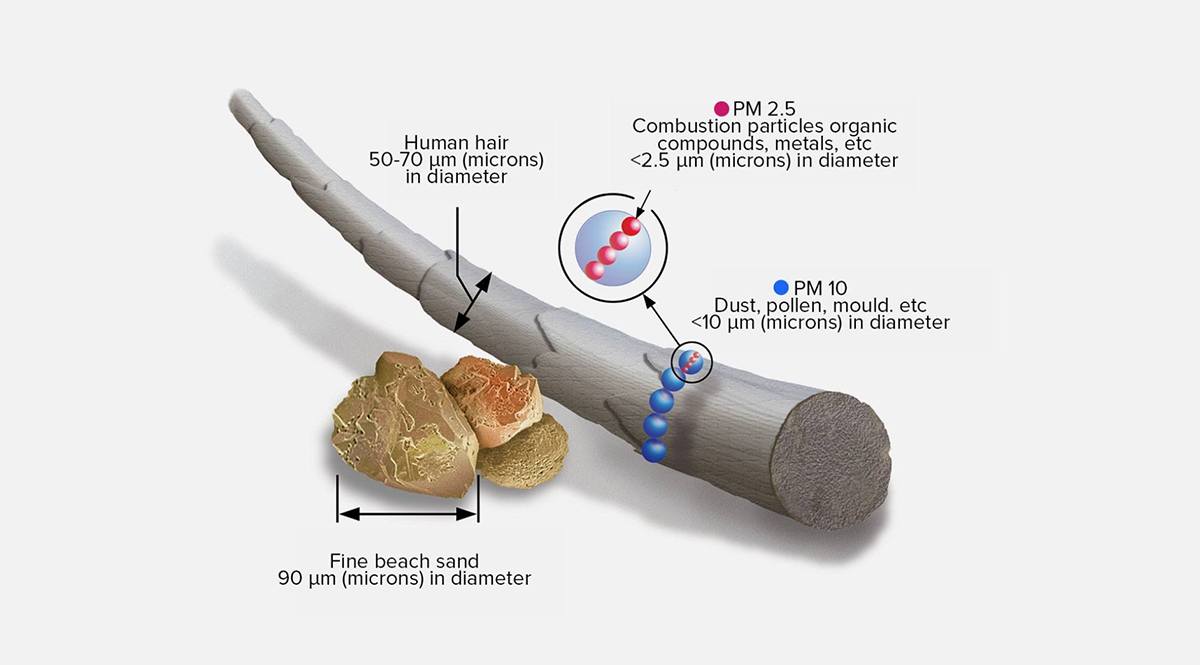
There are filters and filtration systems that exceed a MERV rating of 16. However, they are thick, dense, and usually obstruct the airflow of HVAC equipment, which could potentially damage the system itself.
For that reason, a MERV 13 filter is generally considered the best type of filter for air conditioning use.
Pros of a MERV Filter
The main positives of a MERV filter include:
- Compatibility – Due to the way MERV filters are designed, they are compatible with the majority of air conditioner and heating systems
- A Range to Choose From – Because MERV filters come with a range of ratings, you can select the type of filter that works for you, without overdoing it with an unnecessarily advanced filter.
- Air Quality – MERV filters are known for the high quality of the air they provide. Any system equipped with a MERV filter will circulate clean air easily.
- Affordability – Compared to HEPA filters, MERV filters are more affordable and often more cost-effective than HEPA filters.
Cons of a MERV Filter
The disadvantages of a MERV filter are:
- Poor Performance – Because MERV filters are so good at preventing particles and pollutants from passing through it, it also means that your air conditioner or heater is going to have a harder time getting air through it.
- Higher Bills – As your air conditioner is struggling to get air through the MERV filter, it will use more energy and work harder. Not only will this add to the wear on the system, but it’s going to raise your electricity bills.
What Is A HEPA Filter?
The High-Efficiency Particulate Air (HEPA) filter is a pleated mechanical air filter. This kind of air filter can, theoretically, remove at least 99.97% of particulate matter with a size of at least 0.3 microns, including mould, pollen, dust, and bacteria.
HEPA filters are generally known as the best of the best of air filtrations. All HEPA filters must be able to trap particles at 0.3 µm. (For reference, the average strand of hair is around 40 microns.) HEPA filters generally require an additional fan to operate effectively. Additionally, not all HVAC systems are compatible with HEPA filters as a system needs to produce enough power to move air through a HEPA filter.
The 0.3-micron diameter specification responds to the worst case; the Most Penetrating Particle Size (MPPS). Any particle larger than 0.3 microns is trapped with much higher efficiency.
Although they sound sophisticated, HEPA filters aren’t new. They were developed in the 1940s when scientists worked on the atomic bomb. HEPA filters are the most important component of any air purifier. HEPA filters have a strict set of requirements, some of which are found below:
| Standard | Filtration Rate of MPPS |
| ISO / European (ISO29463/ EN 1822) | ≥ 99.95% |
| US Standard (MIL-STD-282) | ≥ 99.97% |
In the context of ISO or European standards, filters that are unable to hit the filtration rate of HEPA but can capture ≥85% are classified as Efficient Particulate Air (EPA) Filters. On the other hand, those that can capture more than 99.999% of particles are classified as Ultra Low Penetration Air (ULPA) Filters.
| Designation | Filtration Rate |
| EPA (Efficient Particulate Air) Filter | 85% – 99.95% |
| HEPA (High-Efficiency Particulate Air) Filter | ≥ 99.95% – ≥ 99.999% |
| ULPA (Ultra Low Penetration Air) Filter | ≥ 99.999% |
HEPA air filters are not MERV rated because they exceed the American Society of Heating, Refrigerating, and Air Conditioning Engineers (ASHRAE) test protocol 52.2, which is used in determining the MERV rating of a filter. HEPA air filters are the only mechanical air filters tested and certified to meet a specific efficiency at a specific particle size.
Pros of a HEPA Filter
The key advantages of HEPA filters are:
- Reduction of allergy and asthma symptoms – Particles that are the common culprits for allergies and asthma are large enough to be caught by a HEPA filter. Those used in portable air purifiers and HVAC systems can sufficiently catch allergens.
- Absence of byproducts – Most air purifying products produce harmful byproducts. Unlike these products, HEPA filter-equipped systems cleanse the air without harming the environment.
- Commercially available – These filters are found in many home appliances, including residential air filtration units, vacuum cleaners, and portable air purifiers. As such, looking for an appliance equipped with HEPA filters is not difficult.
Cons of a HEPA Filter
The main disadvantages of HEPA filters include:
- Unable to remove every particle – HEPA filters cannot remove pollutants that are smaller than 0.3 microns, which include viruses, specific species of bacteria, and Volatile Organic Compounds (VOC). Household items such as hairspray and ammonia are VOCs. Although HEPA filters can catch airborne mould spores, moisture on the filters themselves can allow the growth of moulds.
- Frequency of replacement – Since HEPA filters trap most particulates, they clog faster than more porous filters. You can expect to replace them twice as often as non-HEPA filters.
- Cleaning difficulty – Due to the size and shape of certain air purifiers, it may be difficult to access the HEPA filter for cleaning. This also means that some HEPA filters cannot be washed, leading to moisture build-up and, consequently, mould growth.
MERV 13 Filter vs HEPA Filter: What’s The Difference?
One of the main differences is the way the filters are classified. MERV-rated filters are classified according to their filtration performance per the effectiveness scale. On the other hand, a filter must meet the specified standards for it to be classified as HEPA.
The primary differences are listed below:
- Air Conditioner Compatibility – MERV-rated filters are compatible with most, if not all, HVAC systems. HEPA filters have limited compatibility due to their high fibre density.
- Airflow Restrictions – MERV-rated filters allow HVAC systems to push air through without heavy resistance. HEPA filters impede the airflow of HVAC systems, causing inefficiency and higher power usage.
- Use Case – MERV-rated filters are used for day-to-day scenarios and in most residential settings. HEPA filters are used in more sensitive environments such as hospitals, nursery homes, surgery rooms, and isolation wards.
MERV 13 Filter vs HEPA Filter: Which Do I Need?
MERV 1-12 filters are generally for residential places, MERV 13-16 are for commercial establishments, while HEPA filters are for sensitive or high-risk areas such as medical and healthcare facilities. As a result, choosing between MERV and HEPA filters will depend on the intended use case.
HEPA filters are known to obstruct the airflow of HVAC systems and, in some cases, cause damage. If you plan to use a filter for a residential or small office HVAC or an area where it gets really hot, HEPA filters might not be appropriate due to the high air resistance it comes with. A MERV-rated filter will do the job if the HVAC is in a location that does not see much pollution.
However, suppose you are in a heavily polluted area (such as in the centre of a very busy city) or an area where diseases are common. In that case, the extra filtration power provided by HEPA filters will be much more appropriate. HEPA filters are also worth considering for homes or offices where some people have high sensitivity to air quality, allergies, or asthma.
MERV 13 Filter vs HEPA Filter: Which Can Help Against Covid-19?
Both MERV and HEPA filters can help against Covid-19. Using a MERV 13 or higher filter has been recommended to combat Covid-19. However, most facilities can only use a MERV 8 or 9 filter. HEPA filters are considered the ‘ultimate solution’, rated as MERV 17 or higher.
HEPA filters are rated at their worst performance and will trap 99.97% of air particles with a size of 0.3-1.0 microns. HEPA filters have a proven ability to capture small contaminants such as viruses — which is what Covid-19 is. Unfortunately, HEPA filters are too fine to be installed into existing HVAC systems. They would require a portable HEPA filtration system with its own fan designed for the filter’s increased air resistance.
MERV 13 Filter vs HEPA Filter: Which Is More Expensive?
Due to the exponentially higher filtration performance of HEPA filters, they are generally much more expensive than even high-rated MERV filters. The overall cost is further increased when considering the frequency at which HEPA filters have to be replaced.
Due to their high filtration ability, they fill up faster than traditional filters, or even residential MERV filters, which often means they have to be replaced.
Another reason HEPA filters tend to be more expensive is that they are not compatible with most commercial or residential HVAC systems. They usually come with their own air purifying system, which means most HEPA filters are proprietary and are not cross-compatible with other systems.
Is a MERV 13 Filter Worth It?
Yes, it’s worth investing in a MERV-13 filter for your HVAC system or air conditioning. The MERV-13 is designed to keep your air fresh, your home safe, and your lungs clean and healthy. If you suffer from allergies, or you are concerned about pollution and viruses, then the MERV-13 is a fantastic option.
A good quality air filter can make all of the difference in the air quality of your home and the environment that you live in. Your health, wellbeing and quality of life are all impacted by the air that you breathe.
One of the main draws for the MERV-13 is its ability to catch the smallest particles and stop them from circulating in your home. Whether you’re worried about bacteria, viruses or bacteria carriers, the MERV-13 will stop them all. Not to mention it also does a fantastic job on all of the usual contaminants, like pollen and dust.
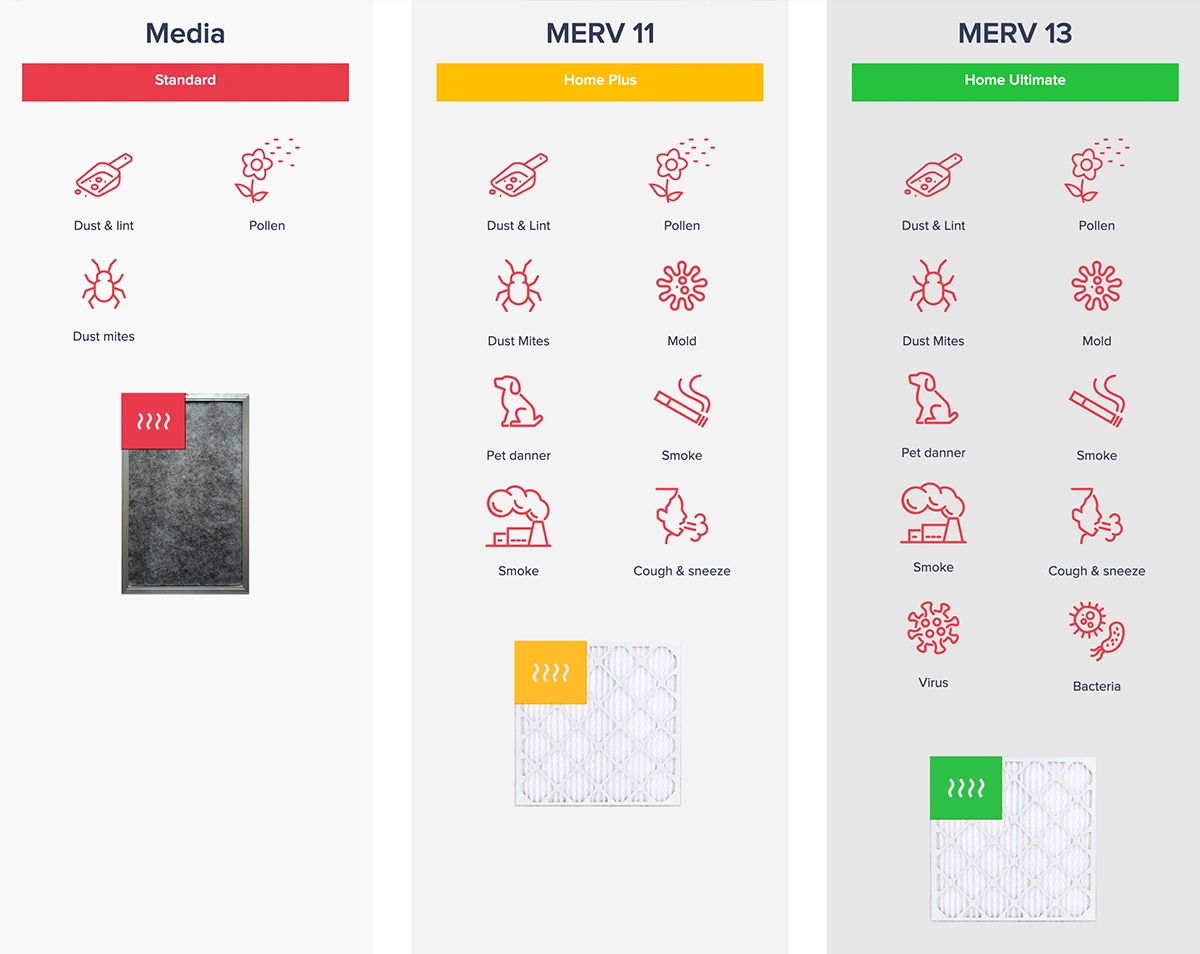
Filter with a low MERV rating doesn’t catch contaminants that are on a smaller scale. For example, a MERV-8 won’t catch smog, smoke, virus carriers or cooking oil and kitchen pollutants.
The MERV-13 filter comes in a range of sizes to fit your existing air conditioning unit properly. It’s the best filter to protect your home from:
- Microscopic Allergens
- Virus Carriers
- Bacteria
- Pet Dander
- Dust
- Pollen
- Smog
- Car fumes
- Smoke
- Debris
- Mould spores
Where Can I Buy MERV 13 Filters in Australia?
Air conditioning specialists can supply and install a MERV 13 filter for your ducted air conditioning unit or HVAC system. However, not all units are able to have a MERV filter installed, so you’ll need professional advice to find out if it’s the right choice for you.
As the indoor air quality experts, Alliance Climate Control goes above and beyond to support your home’s health. Let our team of experts inspect your home and ensure that your heating and cooling system is free from mould, dust mites, allergens, and other harmful substances.
Our technicians also provide you with a tailored service based on your family’s requirements – including asthma, allergies and other health concerns. We’re Sydney’s leading indoor air quality experts!
To find out if a MERV-13 filter could improve your household air quality, contact Alliance Climate Control on 02 8061 5023.
